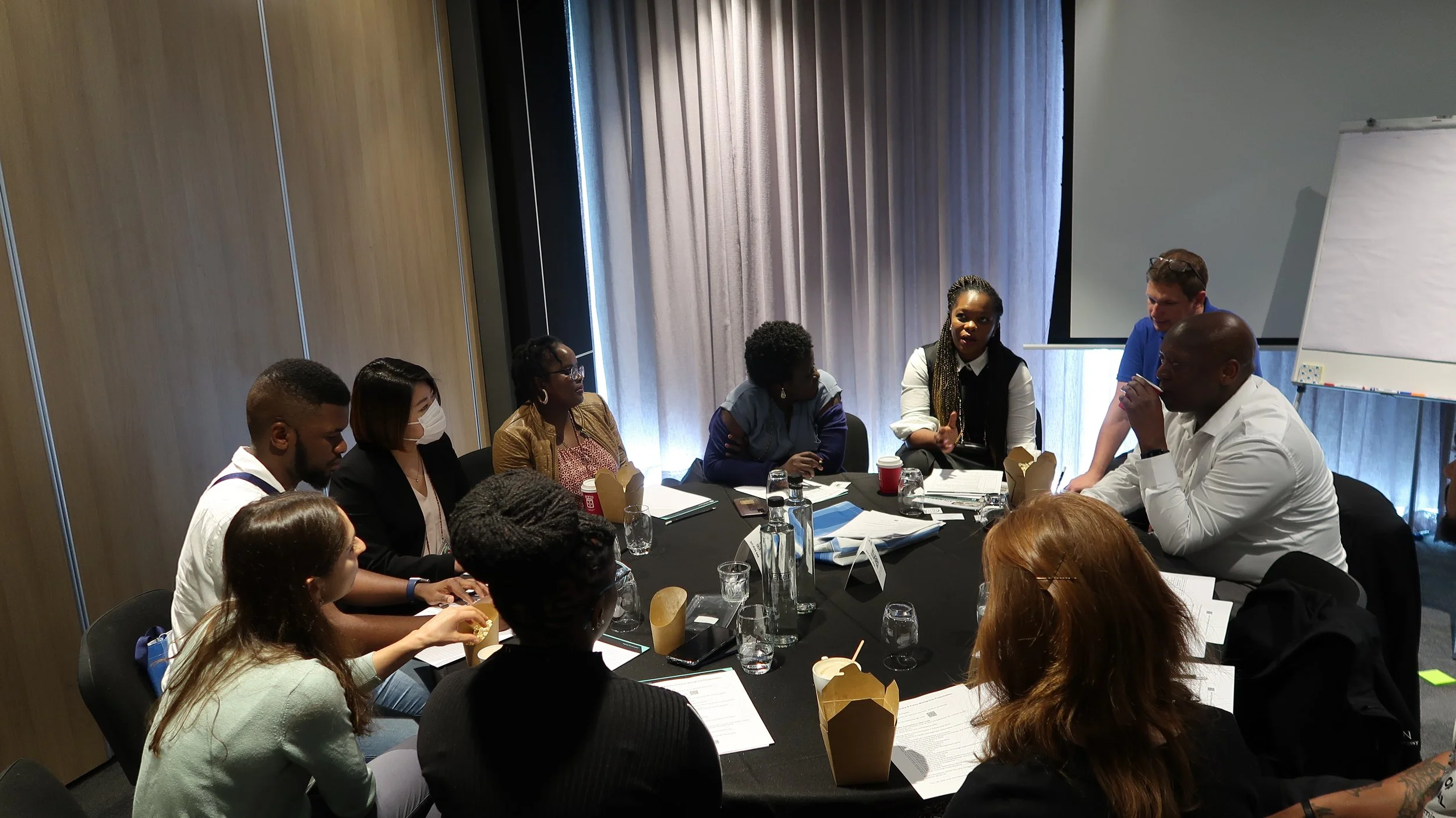AGMHI 2022 Conference: Reflections from Dr. Haley Euting
From day one at BMC, I have been inspired by our department’s global presence. I joined our residency’s Global, Local & Cultural Psychiatry pathway seeking to get involved and explore how culture and geography impact mental health. Through this pathway, we have the opportunity to participate in global experiences, though most have been virtual in recent years given the pandemic. While these have been eye-opening in their own respect, global mental health just isn’t the same when confined to a computer screen. Thus, I was excited to hear that in my fourth and final year of residency, not just one but two mental health conferences would be held in Cape Town, South Africa. I looked forward to broadening my understanding of the mental health issues faced in African countries while getting a taste of South African culture, too.
Drs. Haley Euting and Mihoko Maru
Of the two conferences I attended, my favorite was the 5th African Diaspora Global Mental Health Conference. It was smaller and more intimate than the general psychiatry conference that followed, which lent to a more collaborative environment. It was hosted by the Africa Global Mental Health Institute (AGMHI), an organization established in 2016 to advance mental health care on the continent of Africa and in the diaspora. A number of staff and faculty from our department are active members, including Dr. Henderson who is a co-director. The theme of this year’s conference was “Emerging Voices in Mental Health,” and it celebrated the innovative work taking place all throughout Africa by Africans. The goal was to continue the AGMHI’s work of setting the system up for further success to combat the issue of brain drain, which is known to seriously impact mental health care in many African countries.
The conference began with a keynote address titled, “Transforming academia through equity-focused leadership” presented by Prof. Jimmy Volmink, Professor of Global Health at Stellenbosch University. In it Prof. Volmink stressed the importance of intentionally supporting equity in one’s work, particularly when in positions of power. He explained that equity supports diversity which goes hand-in-hand with excellence. This set the stage for an ongoing discussion about empowering early career clinicians and researchers in Africa and how it could be better done. To discuss the “how,” we broke into four working groups: research, training and education, clinical care delivery, and policy and advocacy. In the policy and advocacy group that I joined, we brainstormed ways of developing a conceptual framework and toolkit that could act as a guide for mental health professionals interested in pursuing research of their own. While this could not be done in one sitting, meeting in person was a nice break from the usual virtual sessions and it allowed for the group to attract potential members (like me).
Breakaway Session: The Advocacy & Policy Working Group
The conference was not all lectures and breakout sessions, though. I valued having the opportunity to meet residents and professionals from other countries and to hear about their experiences. On the first night, we were taken to dinner at the most beautiful vineyard outside Cape Town to do this. Dinner was served in a room with floor to ceiling windows overlooking an orchard of grape vines with Table Mountain in the distance lit up by the setting sun. If this wasn’t enough, a physician-run orchestra played classical tunes in the background. It was truly a scene to behold and one I will not forget.
All in all, I am thankful for the people I met and the opportunity to participate in such an important discussion. What I am taking away most from this conference is the realization that what I do now and as a soon-to-be practicing psychiatrist will have consequences that are not always easy to see. Supporting diversity, equity and inclusion needs to be intentional and requires frequent reflection. Keeping this in mind is a start to a more hopeful future.
Written by Dr. Haley Euting


